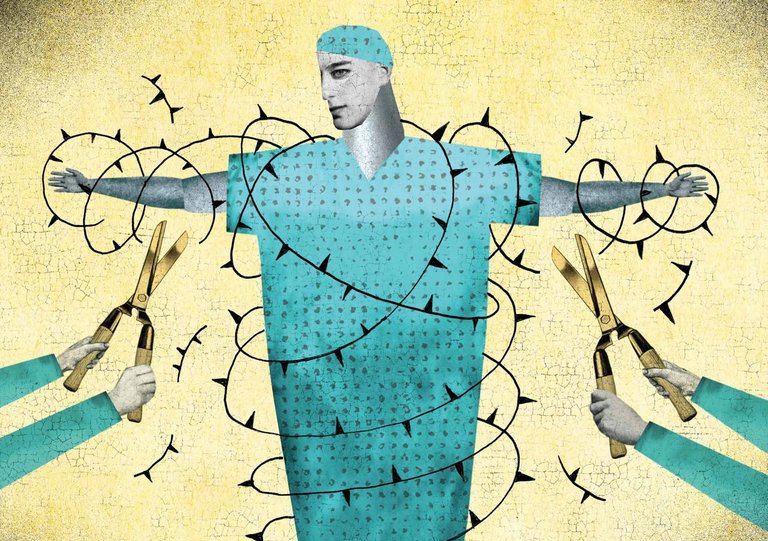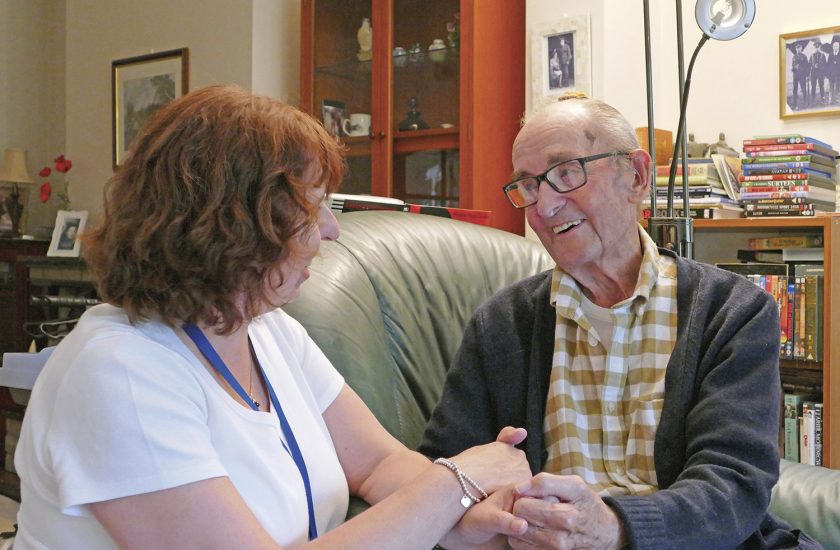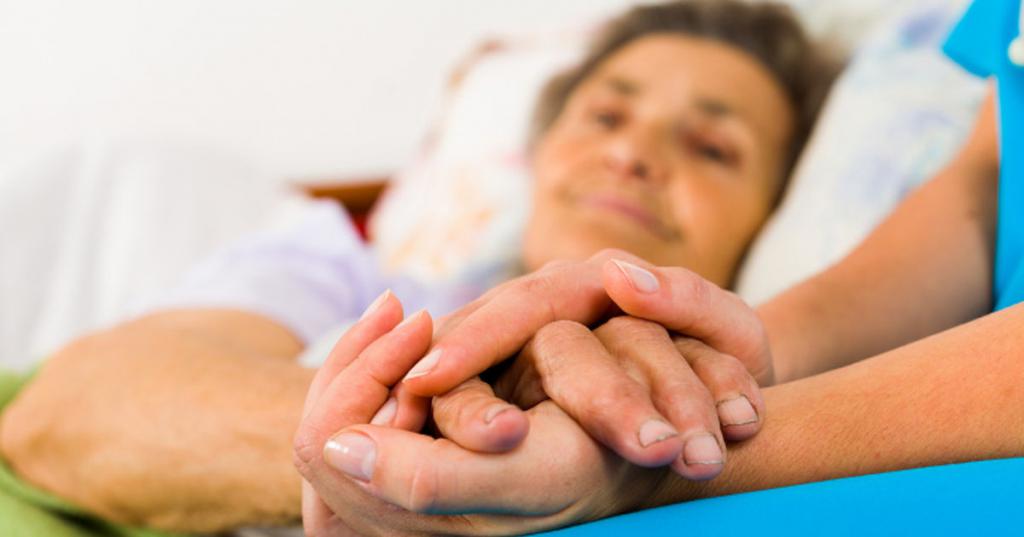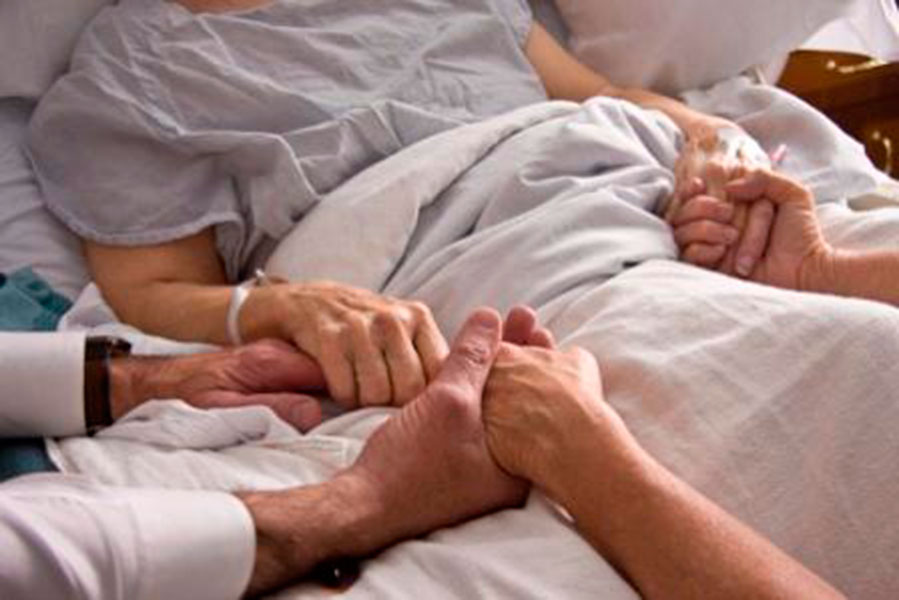Diseases bring a lot of suffering - both to the sick themselves and their relatives. And it’s one thing when a disease is diagnosed and treatable, and quite another if it is incurable. Such people are doomed to painful death if certain medical methods are not used to alleviate a person’s fate. Incurable patients are a special group of patients whose disease does not give reason to hope for a successful outcome.
Life and death
Since the beginning of time, mankind has been reflecting on the basic questions of philosophy - what is life and death. The saying that everything has a beginning and everything has an end is relevant at all times. Perhaps each of the more than seven billion people on planet Earth believes that dying in old age without torment is just a dream - an ideal outcome for years lived. But such a happy ending awaits only a few - diseases haunt people throughout their lives, sometimes leading the patient to a critical state and the realization that no one and nothing can help, only death lies ahead. Incurable patients are precisely those people whose disease is critical and not amenable to the action of even the most progressive and successful medical methods.
The concept of the terminally ill
Medical terms for the vast majority of ordinary people are incomprehensible and not needed. But this only happens until you have to deal with what they mean in their own lives. While there is no incurable disease problem in the family and close people, the term “incurable patient” is not clear. Its definition can be found in the medical encyclopedia, which says:
Incubability comes from the Latin word incurabilis, which translates as incurable. This term denotes such a condition of the patient, depending on the pathological process or general disorders in the body, completely eliminates the possibility of not only healing, but also long-term maintenance of life.
Thus, incurable patients are patients for whom all medical techniques will not bring hope for a continuation of life, the so-called hopeless patients.
Diagnostic and diagnosis knowledge
Diagnosis is a special area of medical care, because only the correct, absolutely correct diagnosis becomes the beginning of high-quality treatment and care. Only the absolute conviction of a consultation of specialists that the patient is incurable gives the doctor the right to assert this as a fact.
Also, the question of setting the patient and his relatives to the knowledge of the incubability of the disease is also difficult. Recommendations to specialists in this vein are quite contradictory, the experience of a professional psychologist is needed here to say the right words about a disappointing diagnosis at the right time. Tips for professionals, there are:
- in order to inform the patient of the diagnosis of an incurable disease, the specialist must have a sufficient amount of time, not limited to the standard time, because a conversation may require a lengthy conversation;
- it is necessary to take into account the patient’s desire to hear the truth about the diagnosis (if a person is convinced that he does not want to know the truth, whatever it may be, the specialist should postpone such a conversation);
- a disappointing diagnosis is best reported to the patient after a preparatory conversation, in which purely medical terms that are incomprehensible to the patient should be avoided;
- even an incurable diagnosis is not a sentence, therefore, a report on the patient's condition should not contain phrases about an imminent death;
- the one who informs the patient about the incurability of the disease needs to be prepared for strong emotions - anger, anger, horror;
- one must be able to empathize, sharing the bitterness of knowledge of a deadly disease.
Assistance to incurable patients is a comprehensive support for relatives, friends and medical staff.
Shelter from the manifestations of a deadly disease
Many have heard about palliative medicine in connection with stories about hospices and centers for helping hopelessly ill people. The name of the complex of measures, including medical care, comes from the Latin pallium, which means “blanket”. And just as a shelter from physical and mental pain this technique should work. It does not eliminate the problem itself - an incurable disease, but should help cope with its consequences. Palliative care for incurable patients consists of a system of modern affordable tools and techniques that can help a person in everyday situations to cope with everyday tasks. The Russian Association of Palliative Medicine, organized in 2011, operates in our country. The concept of "palliative care" includes the following components:
- Prevention and relief of pain.
- Symptom control.
- General patient care.
- Training and rehabilitation, corresponding to the new living conditions of the incurable patient.
- Psychotherapeutic help.
- Family support during illness of a loved one and after his death.
Also included in this concept is research. It should be noted that palliative care is not only support for cancer patients, as many people who are quite far from such a problem think. Patients of senile age, people who have received dangerous injuries, incompatible with life, that is, those whose lives go on hours, days, months at best, need it.
Nursing care
The nursing process for caring for incurable patients is the professional help of a qualified specialist, based on medical procedures and manipulations that can alleviate the patient's condition. Palliative care is divided into two broad groups:
- assistance in a specialized hospital;
- home help.
The work of a nurse aimed at an incurable patient, for its own purposes, coincides with the goals of palliative care as such, and this:
- dynamics of pain control;
- general care;
- control of symptoms - anorexia, cachexia, nausea, vomiting, dizziness, constipation, diarrhea, insomnia, confusion and other manifestations of the disease and its complications;
- prevention of complications based on physical inactivity.
Also, nurses caring for incurable patients should provide psychological support to the patient and members of his family, teach them self-help and mutual assistance methods.
Psychologist's help
One of the most important components of palliative care is psychological care for incurable patients. After all, pain with an incurable disease can be of two types - physical and psychological. And if the first type can be removed with the help of certain medications or manipulations that affect the source of pain, then mental suffering is a whole complex of psychological problems. High-quality help in this direction plays an important role in maintaining the patient's more or less satisfactory condition, because there is evidence that a conversation with a professional psychologist allowed incurable patients not to use painkillers for at least some time, such was the strength of emotional support.
The qualities of a good psychologist should be possessed by medical workers, especially those who are directly involved in the life of an incurable patient.Often, ordinary people do not have the means to hire a specialist who can help a person suffering from an incurable disease to get used to his situation. Therefore, the quality of the psychological climate depends on the medical staff and the relatives of the patient. To be able to find the right words, talk about the disease and the impending death is necessary so that the person is aware of both his need in this life and his memory after leaving. Many patients suffer very much from mental loneliness. To help reconcile and realize the approaching death is not an easy task, it requires a lot of mental expense.
Care products
Helping incurable patients requires the participation of not only the human factor, but a set of measures expressed in material means:
- medical materials - cotton wool, bandages, syringes and droppers;
- groups of drugs, many of which can only be bought by prescription;
- special equipment - wheelchairs, beds, ships;
- household items and personal hygiene products that help both the patient and his environment in everyday everyday hygiene procedures.
All means for caring for hopeless patients should pursue one goal - to improve the quality of his life.
Hospices and palliative departments
Incurable cancer patients are a special group of patients, quite extensive, of different ages. Unfortunately, people often neglect regular check-ups, which can detect cancer at an early stage. And when the diagnosis becomes clear, medicine can no longer save a person’s life. It is mainly for cancer patients, often in the terminal stage, that institutions such as hospices or hospitals of incurable patients are created. These are specialized medical and social institutions in which hopeless patients receive palliative care in order to reduce and eliminate pain and fear, while maintaining at the maximum level their intellectual abilities and consciousness as such.
A hospital service helps these patients in palliative care units. But most often hospitals of different levels refuse incurable patients, sending them home to die. To date, the number of specialized medical and social services that help improve the quality of life of incurable patients is extremely insufficient.
Home content
Incurable patients are people whose disease is no longer amenable to radical treatment and is considered hopeless. Hospitals, inpatient departments that are not palliative, refuse such patients. Therefore, care for terminally ill patients in most cases falls on the shoulders of relatives. Such people need qualified help from a psychologist who will help coordinate communication with an incurable relative. Indeed, in the case of home care, it is necessary to properly organize not only the patient’s life, but also their own. Specialists recommend finding the line between excessive guardianship and exclusion. Undoubtedly, there are a lot of nuances, and it’s quite difficult to get along with general advice. But there are several basic principles:
- no need to give excessive attention, constantly talking about the deplorable situation or, conversely, expressing unjustified optimism;
- do not surround the patient with mystery - speak in whispers, hints, hide some important information;
- an appeal to non-traditional methods of traditional medicine in case of refusal of the palliative care offered by specialists can only serve as an impetus to unnecessary torment, both physical and psychological.
Palliative medicine offers help not only to the patients themselves who are at the stage of the disease that is not amenable to radical treatment, but also to the immediate environment of such patients.The competent help of a medical and social worker helps to cope with many problems of home maintenance of a hopelessly sick person. The Center for Incurable Patients is one of the ways to get qualified recommendations, help in acquiring medications and care items, and ensuring a sufficiently high standard of living for the patient. Experts do not recommend being left alone with their problem; communicating with people who find themselves in a similar life situation helps to better cope with all the tasks and problems that arise during this difficult period of the fading life of a loved one.
Patient problems
Incurable cancer patients are a special group of patients whose life is nearing completion through pain and suffering. It is these two factors that put such patients in a special position, moreover, awareness of the hopelessness of the situation contributes to increased moral suffering, which increases physical pain. Such people should not be biased, in addition, in a similar situation, everyone behaves differently: someone blames his relatives and doctors for everything, while someone, on the contrary, exposes himself to complicate the life of his family. And if pain can be removed by acting with medications or manipulations on the center of pain, then the psychological suffering for many becomes unbearable, pushing to suicide.
Relatives problems
What does an incurable patient mean in a family? This is a special way of life in which support of each other and understanding of impending loss come first. The main problem of people who, due to certain circumstances, have to independently care for a terminally ill relative, is family conflict. Most often they arise against the background of material problems. arising in the family due to the need for spending on medicines, care products, qualified medical personnel. This also includes problems caused by inheritance matters.
If a family cannot establish relationships when an incurable patient appears in it, the help of a medical and social service and a qualified psychologist is needed to restore peace. In this case, the patient’s placement in a hospice can provide some help. Specialists of the institution are able to help the patient cope with three facets of the problem of gradual withdrawal from life - medical, psychological and social. They are closely interconnected, and awareness of this will help a person to go the right way with minimal suffering.
The difficulties of medical institutions
Incurable cancer patients are a special status of patients whose disease is not amenable to radical treatment, for which specialized institutions or palliative care departments are being created. The main problem of such medical and social institutions is the lack of qualified personnel and funding. Here, the issue of accessibility of narcotic painkillers, which are so necessary to improve the quality of life of incurable patients with severe pain syndrome, which is expressed in the shortage of such drugs and legislative restrictions on their use, is especially relevant. The problem of personnel certified for palliative care is very acute for our country. Both of these problems can be solved only at the legislative level, which the state is engaged in. You can also highlight the problem of insufficient beds for incurable patients in need of such skilled care.
State and palliative care
Palliative care for incurable patients should be the concern of the state, because each person is worthy to live his life without physical and psychological pain caused by an incurable disease. Today, experts suggest several aspects of solving this serious problem:
- quality education in the field of palliative medicine and palliative care;
- organization of hospice and palliative care;
- medicinal care for incurable patients;
- the problem of the availability of narcotic analgesics for the treatment of chronic pain in incurable, including cancer patients.
The termination of life?
Incurable patients are people with an incurable disease, with a well-established diagnosis and poor prognosis of the outcome of the disease. Such patients often die in severe anguish, both physical and psychological. The so-called palliative medicine is called upon to help them. But due to many circumstances, even with quality care, many patients ask for an end to their torment and torment of relatives through euthanasia - the termination of life. Specialists distinguish two main types of such a step:
- passive euthanasia;
- active euthanasia.
In Russia, all forms of euthanasia are prohibited! And here the problem of suicide arises, and it concerns both incurable patients themselves and their relatives who are unable to cope with all the problems that have befallen the family after making a terrible, hopeless diagnosis. High-quality palliative care for patients and their families is a way out of a difficult life situation.
Incurable patients are people whose disease is incurable at this stage in the development of medicine. Their days are numbered and often pass in suffering from physical and mental pain. To provide support and make the standard of living of such patients worthy is the main task of palliative medicine.









